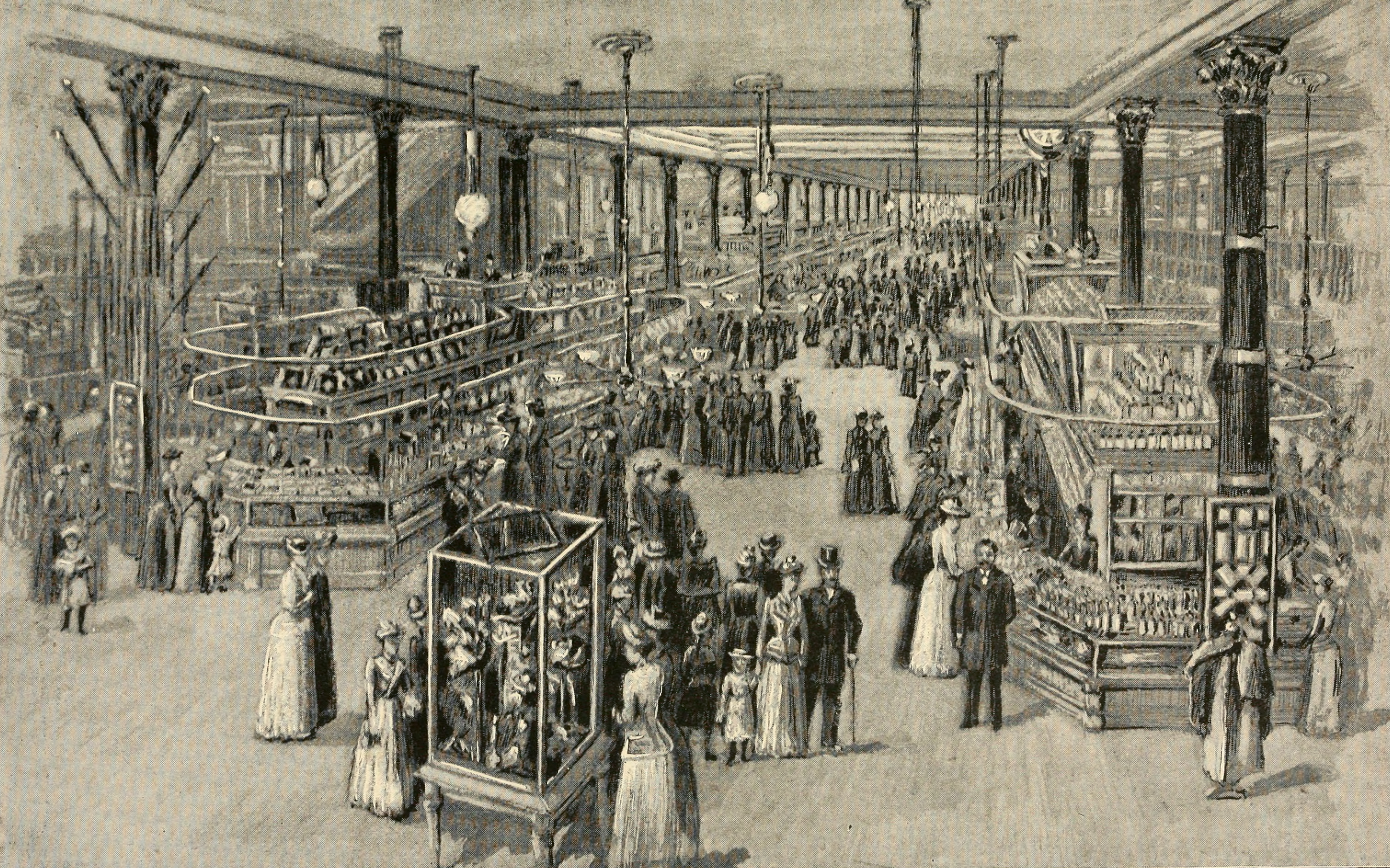Making Friends on State Street
The folks now living in the recently-constructed townhouse on State between Nevins and Bond aren’t exactly making friends on the block, it appears. Over the weekend, they decided to do a little jackhammering, much to the chagrin of the some neighbors. “What the hell were they jackhammering in a basically 6 month old house?” asks…


 The folks now living in the recently-constructed townhouse on State between Nevins and Bond aren’t exactly making friends on the block, it appears. Over the weekend, they decided to do a little jackhammering, much to the chagrin of the some neighbors. “What the hell were they jackhammering in a basically 6 month old house?” asks the tipster who sent this in. Has to be either for the cellar or the backyard, we’d guess. Did anyone have the pleasure of hearing these shenanigans? Any other tales of particularly inconsiderate neighbors this weekend? GMAP
The folks now living in the recently-constructed townhouse on State between Nevins and Bond aren’t exactly making friends on the block, it appears. Over the weekend, they decided to do a little jackhammering, much to the chagrin of the some neighbors. “What the hell were they jackhammering in a basically 6 month old house?” asks the tipster who sent this in. Has to be either for the cellar or the backyard, we’d guess. Did anyone have the pleasure of hearing these shenanigans? Any other tales of particularly inconsiderate neighbors this weekend? GMAP





haha that loong Jane post is the funniest I’ve read all month. B-SToner I gotta dmit this place is crazy 🙂
ok ok so I’m the jackhammer – shees wadya make of it all – I just a tryin to break into this darn safe in Jane’s bedroom. Darn can’t get any respect!
inhand:
Best. Post. Ever.
I dare you to go and post your stupidity this weekend again, smart ass.
Someone will be specting you, and ready to teach you manners.
Pray to the Lord and let your neighbor jackhammering his brains off.
8:24 – could be; my read was the opposite… they work at night and sleep during the day, and thus was complaining that she couldn’t sleep on a weekend (Sunday) day, though she normally could, as that kind of work
Just for fun handwriting analysis.
For a graphologist, the spacing on the page reflects the writer’s attitude toward their own world and relationship to things in his or her own space. If the inputted data was correct Jane has left lots of white space on the right side of the paper. Jane fills up the rest of the page in a normal fashion. If this is true, then Jane has an unhealthy relationship to the past and has a fear of moving forward. The right side of the page represents the future and Jane seems unwilling to face the fear of getting started living now and planning for the future. Jane seems to be clinging to past events and spending lots of time thinking about what happened. It would be best to leave the past behind and move on. Stop crowding that left margin.
Jane is having some confusion in her physical life. She is examining the past to give her answers about some of her physical desires. She may be trying to find a balance between her philosophical beliefs and her natural physical desires.
Jane’s true self-image is unreasonably low. Someone once told Jane that she wasn’t a great and beautiful person, and she believed them. Jane also has a fear that she might fail if she takes large risks. Therefore she resists setting her goals too high, risking failure. She doesn’t have the internal confidence that frees her to take risks and chance failure. Jane is capable of accomplishing much more than she is presently achieving. All this relates to her self-esteem. Jane’s self-concept is artificially low. Jane will stay in a bad situation much too long… why? Because she is afraid that if she makes a change, it might get worse. It is hard for Jane to plan too far into the future. She kind of takes things on a day to day basis. She may tell you her dreams but she is living in today, with a fear of making a change. No matter how loud she speaks, look at her actions. This is perhaps the biggest single barrier to happiness people not believing in and loving themselves. Jane is an example of someone living with a low self-image, because their innate self-confidence was broken.
Jane is a cumulative and procedural thinker. She likes to have all the facts before making a decision. She thinks or creates much like a brick mason, stacking fact upon fact. Her thought pattern or the conclusion will not be complete until the last fact is in place. Like that brick wall, Jane learns faster through visual demonstration than through quick verbal instructions. Once she has learned new material, and understood it, she won’t forget. Jane is a methodical thinker, therefore she is able to build things and come up with new ideas. In an argument, she often loses to rapid thinking people because she is thinking thirty minutes later about what she should have said. These people often are very booksmart, but can be out-gunned in a rapid fire verbal debate. She may learn new ideas at a slower pace than other “less detailed” people, but once she gets it, she can handle repetition. Some people hate jobs with too much repetition, she can handle it better than most.
Jane will be candid and direct when expressing her opinion. She will tell them what she thinks if they ask for it, whether they like it or not. So, if they don’t really want her opinion, don’t ask for it!
Most people with a severe leftward slant have some type of childhood trauma they have yet to work through. Since we didn’t actually “see the writingâ€, we can’t tell if she actually has a hard left emotional slant, but if so… she has issues with trust and it is likely rooted in childhood. Jane has withdrawn into herself. She is reserved and shows her feelings only at times of great anger, extreme passion, or tremendous stress. Jane is an introvert. She makes decisions based on logic, therefore she is rarely impulsive. She doesn’t find any need for expressing her emotions. In fact, she probably sees this emotional expression as an unnecessary waste of time. She has a hard time relating to an extreme extrovert, although it is common for her to be attracted to one. Many people do not understand Jane; it is difficult for them to really know how Jane feels. Jane enjoys being alone, and probably prefers working alone. Working with her hands is a pleasure. Jane’s basic nature is to look out for herself first. Although she can and does feel emotions, perhaps as deeply as anyone, she just almost always harbors them inside. The first time someone angers Jane, she probably will not say anything to that person at that time. However, she will mentally keep track of everything this person does wrong to her until she cannot hold her emotions inside any longer. Then; Boom! Jane will cloud up and rain all over them. And she will never regret telling someone off, because she knew what she was saying the entire time. She won’t impulsively tell someone off. Emotional stories will not sway Jane. She thinks totally with judgment, first considering every situation by the effect it will have on her. Jane needs space and time alone. She will be much more efficient if given a job alone, rather than being surrounded by people.
People that write very large tend to be very social and friendly. It seems Jane has this type of writing. This indicates a need for people and a particular natural ability to socialize and be the life of the party. Now, if Jane also has specific fears (like fear of criticism or fear of trust) then she will deny she is the life of the party, because fear has overcome her natural inclination to be social. People with large handwriting tend to be effective at anything that requires interaction with lots of people. she is a people person.
Jane can be defiant. She sometimes has the attitude that if someone doesn’t like it the way she is doing it, then they can just “go to hell!” This trait may reveal itself in a rebellious nature that is always ready to resist forces which she thinks are infringing upon her freedom of action.
6:45–i think “some of us work at night” could well mean that the person was trying to work at home but could not because of the noise. that’s how i read that note anyway.
Did ANYBODY read iddelz’ post at July 23, 2007 2:40 PM?
I have no idea whether his/her statement is factual but, if it is, then it really does sound like a jerky thing for the townhouse owner to do. And, yes, when I took the photos the mere presence of the notes still on the door at noon on Sunday, plus the multiple advertising flyers resting on the doorstep, did suggest to me that the owners weren’t at home. I’m just surprised that this nugget of information which may explain the situation went totally unremarked upon.
Except, 6:14, the ranting notes on the door indicate that the work was during the day, not night:
“Some of us work at night!!! Thanks a lot!”